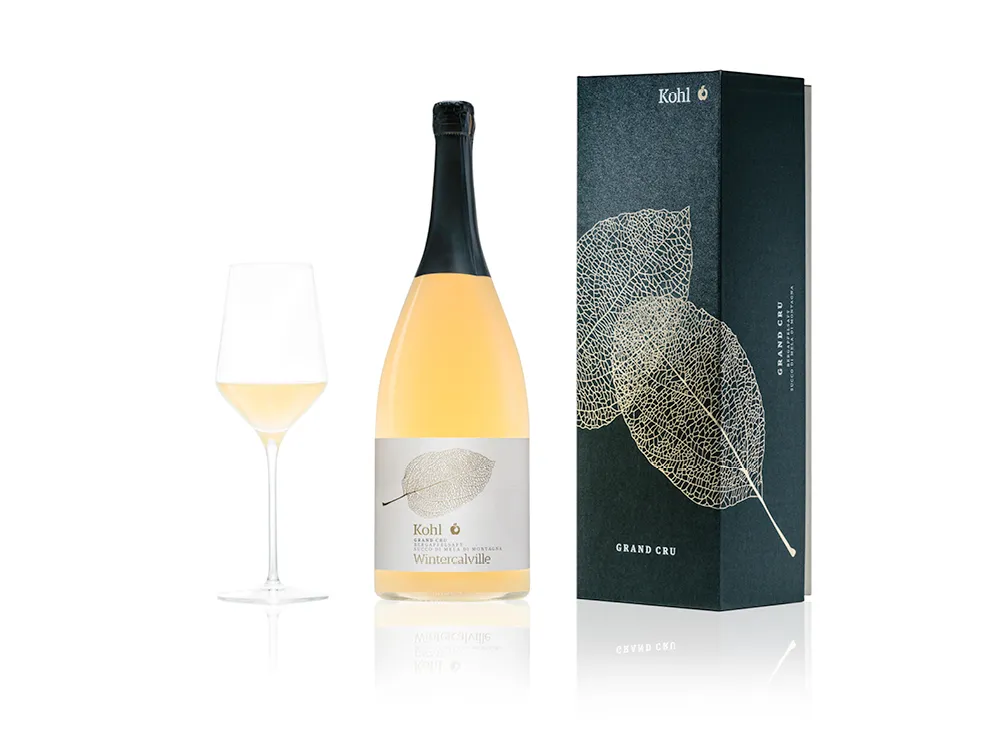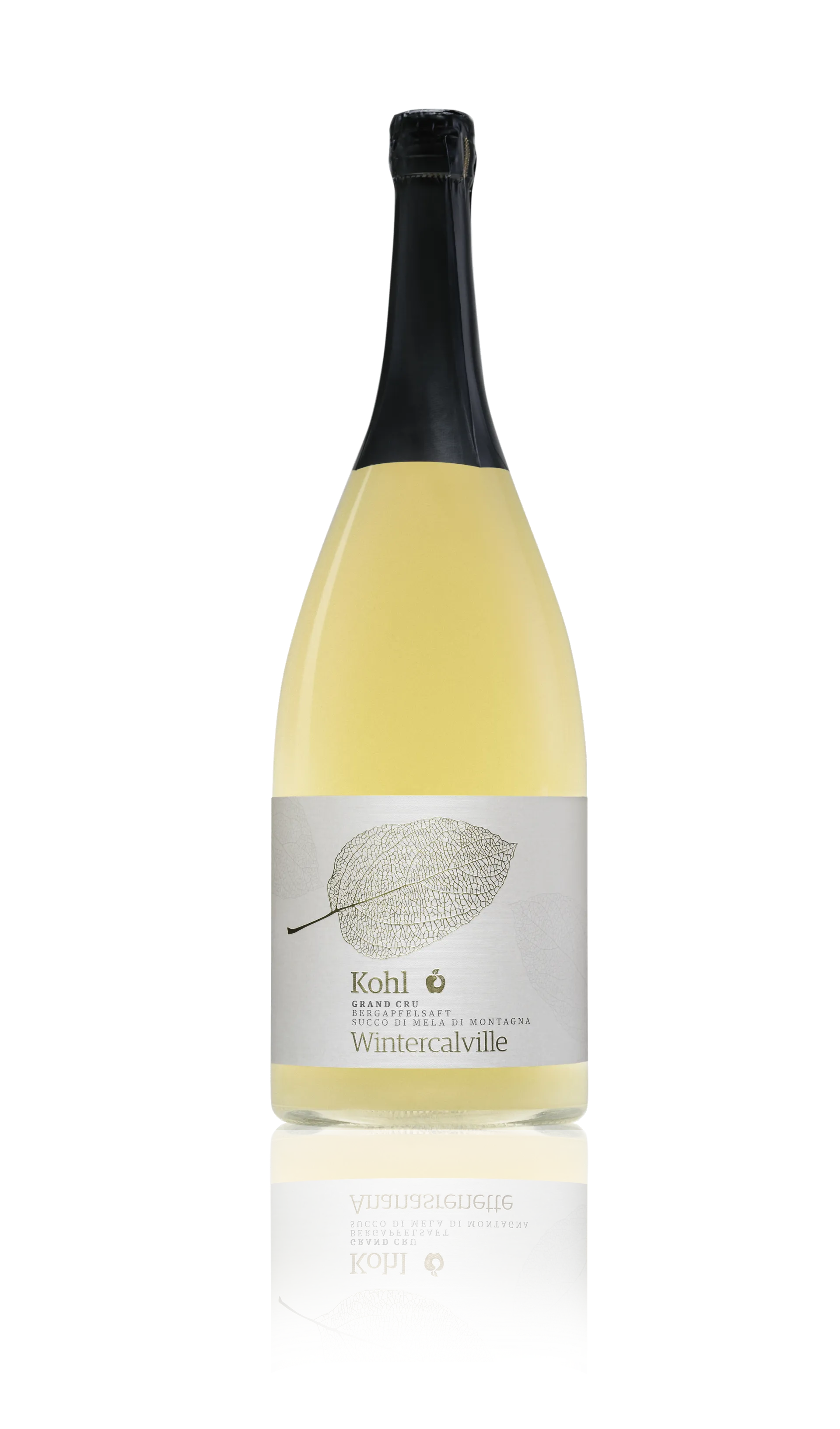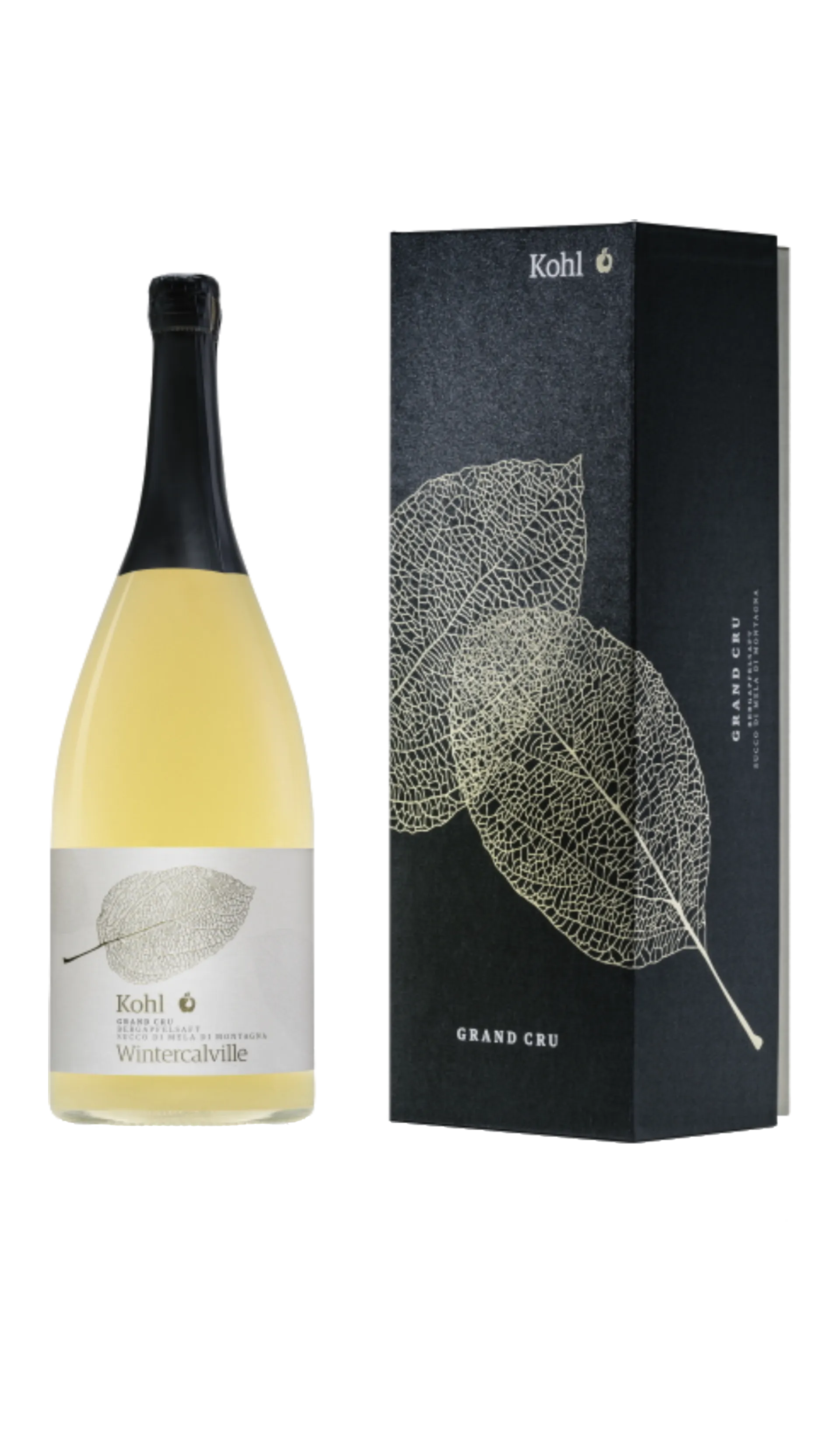Grand Cru Wintercalville

The name stirs the imagination, taking us on a journey to a cold land under a blanket of snow—a journey the Wintercalville truly made. News of this remarkable dessert apple reached as far as the court of the Tsar in St. Petersburg, where the "Merano Calville Export Company" would eventually deliver it. The apple’s lineage can be traced back to the Middle Ages. Likely originating from Normandy, the Wintercalville was widely cultivated and highly sought after for centuries, even among the elite. It could also be found in the orchards of King Louis XIII in Orléans. In France, this now-rare apple is still considered a gourmet fruit, served as a dessert and used for apple pies.
The Wintercalville tree is delicate and requires rich, warm soil—the kind it finds here on the Ritten plateau. Its flesh is yellowish, tender, very fine, airy, and fragrant, with aromas of white peach and juicy, yellow plums. Gently pressed, it yields a unique and characterful mountain apple juice.
A look back in history:
The year is 1898. In many places, the work of draining and cultivating the floodplains and meadows in the Adige Valley is complete. It is widely known that vines and fruit trees with the finest table fruit thrive here like nowhere else.
One October day.
In the orchards of the Pinzenau estate near Merano, a special fruit has ripened. The splendid Wintercalville glows yellow, with touches of red, high up on the apple trees. Its taste is exquisite, earning it the name "King of Apples." Fruit pickers climb wooden ladders, placing the apples in sacks fastened at their sides. Then, the apples are packed into wooden crates.
Meanwhile, the "Merano Calville Export Company" eagerly awaits this valuable table variety. From here, the apples are shipped to countries far and wide. Each luxurious fruit is carefully wrapped in silk paper, one by one. Sold individually—not by pound or kilo—they were astonishingly priced at up to three Austrian crowns per apple of the highest quality.
Carefully packed and accompanied by women in traditional Tyrolean dress, the apples would travel on two-wheeled carts and larger wagons over the Brenner Pass to Munich and Vienna, destined for the imperial family’s table. Another important customer was the Tsar’s court in St. Petersburg.
In 1801, Johann Prokop Mayer, a gardener and author of Pomona Franconica, described the apple thus: “The White Wintercalville has such an exquisite wine-like flavor that one might believe they are eating pineapple or strawberries prepared with champagne.”


